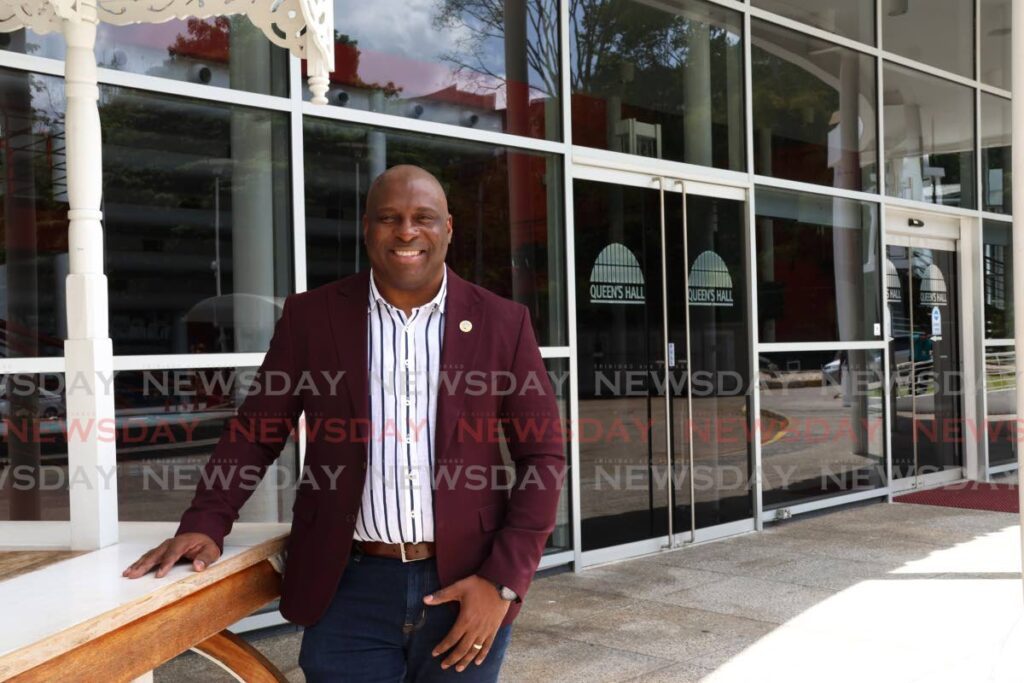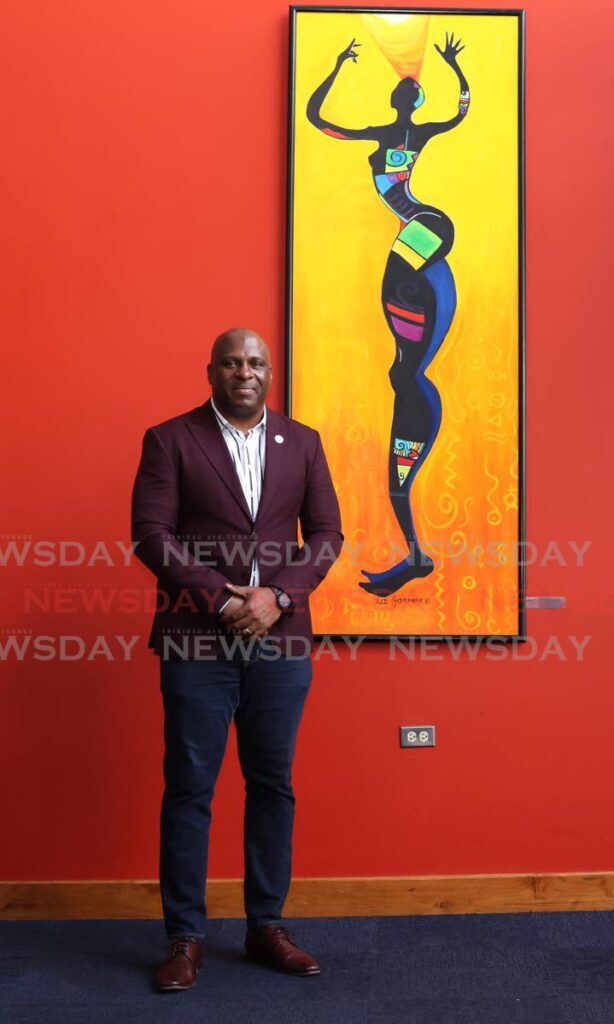Japanese theatre, drumming, to take centre stage – Queen’s Hall seeks to grow business

Queen’s Hall has been the home of events in this country for more than 50 years. It has been an integral cog in Trinidad and Tobago’s cultural wheel and it is hoped that continues for decades to come.
To achieve this, the facility’s board has been steadily transforming Queen’s Hall into more than a space but a content-generating brand. It began this transformation with its Together Event, its general manager Garfield George said.
In a face-to-face interview at the hall, St Ann’s Road, Port of Spain, George said the event began as an initiative to have the facility stage its own productions.
“Traditionally Queen’s Hall is known for just being a rental space and the board felt it was time that we showcase we can also produce our own events as well. One of the challenges was we did not want to compete with other producers to be doing the same type of event.”
So it decided to host one in September, outside the peak theatre season. This year’s event will take place from September 20-23 and will feature traditional Japanese theatre, Kabuki and Taiko drumming, courtesy the Japanese Embassy.
The first Together event took place in 2022, as the country eased out of covid19 restrictions. It was designed to bring people back together and, that year, attendees were even invited to take a group selfie on Republic Day, George said.
The first event showed the building’s versatility, the event was successful and the board decided to make it an annual happening, he added.
Last year, the Together event was a symposium discussing artificial intelligence’s role in culture and Carnival. Reimaging Queen’s Hall was important as many see it as simply a rental space for theatre productions, George said.

Besides different spaces such as the car park, green spaces, garden theatre and lobby that could accommodate various events, it plans soon to have a different kind of content produced there.
George and the board see cultural exchanges as an essential part of Queen’s Hall’s future – hence the exchange with the embassy.
A release about this year’s event said it will be a dynamic cultural exchange between TT and Japan and will comprise a series of performances, workshops and collaborative activities.
The release said Japanese Ambassador Matsubara Yutaka revealed plans for Japan Culture Week as part of the 2024 celebrations, which will also include an exhibition of artwork crafted from wood.
“Aligned with the National Development Strategy (Vision 2030) and the Ministry of Tourism, Culture and the Arts’ policy, Together 2024 aims to accelerate growth initiatives for the tourism and creative sectors in TT,” the release said.
“The four-day event will feature an array of activities, including cultural workshops on origami and calligraphy, interactive exhibits showcasing TT’s national instrument, pan, and collaborative performances blending local and Japanese musical traditions.
Attendees can also enjoy film screenings of Japanese and local short films, indulge in a food festival featuring Japanese-Trinidadian fusion cuisine, and explore a local artisan market offering handmade crafts and delicacies.”
Apart from cultural exchanges with different partners, Queen’s Hall is also looking to technology as part of its transformation.
The board completed a strategic plan in December and one aim is to provide a space for immersive theatre productions. The board intends to apply for funding through the Ministry of Planning’s Infrastructure Development Fund (IDF) to build out the digital space.
It is budgeted to cost $19 million and the board hopes to see a return on that investment in ten years, George said. It hopes to seek final approval by the end of this year and that construction can start in 2025.
Not only will the digital space help to transform the venue, but it is additionally hoped it will draw younger audiences back to Queen’s Hall. George said the way theatre is produced must change to accommodate younger audiences while also allowing them to understand traditional theatre.
Planned apprenticeship programmes with the University of Trinidad and Tobago (UTT) and UWI are also aimed at doing so.
As it develops more cultural exchanges, George said, within the last couple of years, the board was flooded with requests from international parties for partnerships.
“We have had a number of requests, as well, coming out of the pandemic for some international type of events. Our challenge, however, within our vision and mission, speaks to supporting the cultural sector and nurturing the arts at a reasonable cost.”
George said the cost of operating the theatre for one production is approximately $32,000 which includes staff, lighting, security, janitorial etc. The basic package to rent Queen’s Hall is $7,000. It receives a subvention from the Ministry of Tourism, Culture and the Arts of almost 80 per cent of its operating costs.
George said it was not that the board could not raise its own funds, but its goal and mission was not to make a profit or gain revenue to that extent. He said the ministry believes Queen’s Hall can be self-sustaining, but this was difficult without additional support.
“I would take a lot more. With a seating capacity of 700 and if we raise our rental and we talk about, in our strategic plan, optimising rental opportunities, we are booked 90 per cent of the days, 365 days of the year. There is a very narrow window for any other rental.
Even with that full capacity for rental – and I am talking about we are booked a year in advance – even with that full rental, we only earn $1.8 million in revenue every year, and it takes about $16 million to operate (staff, maintenance).”
The government subvention might decline, as the intention was to wean the organisation off it. “As they go down, the expectation is that we go up.”

George said there might not be an immediate desire to increase fees, as some groups might not be able to afford them, and the board was focused on its mission to provide a venue at a reasonable cost to nurture the arts.
Its increase in content generation also meant getting new and young producers onboard. It hopes to achieve this through initiatives like special packages aimed at them.
“When all of these big producers book up all of the space, how do we encourage new producers? So we are looking at the time slots when there is downtime, and to not only encourage them to come at downtime but at a reasonable cost.”
It also plans to target regional markets with its digital space. The goal is to create some new type of productions, George said.
“We see Port of Spain – under the Ministry of Tourism, Culture and the Arts, sometime we tend to focus on the destination and not the culture – we think culture is the largest product for tourism.”
George added that Port of Spain had to be marketed through city tourism and Queen’s Hall, as the eighth magnificent building close to the Savannah, was key to this.
“Queen’s Hall is not just a rest stop, but a facility where they can come in and experience our culture,” he said.


Comments
"Japanese theatre, drumming, to take centre stage – Queen’s Hall seeks to grow business"